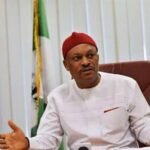National polls underestimated Trump, but swing state predictions were more accurate

Source:
New York Magazine
New York Magazine’s political columnist Ed Kilgore argued that “nobody should feel misled” about the polls this election cycle, given that pundits for months had said the election’s outcome was a coin flip. However, national polling averages — which represent a simulation of the national popular vote — once again underestimated Trump’s performance: FiveThirtyEight’s final projection had Harris up by 1.2 points and The Washington Post had her up 2 points. Even as the vote is still being counted, Trump leads Harris 3.5%. Battleground state results were more accurate and had suggested one candidate could sweep them all, Kilgore wrote: That it actually happened is “a partial testament to the accuracy of polls that showed them all equally in play.”
Newer polling methods may not reach Trump voters

Sources:
The Times, BBC, Semafor
Some pollsters have recently shifted to using online surveys, but that could favor respondents who are young, engaged in politics, and working from home, a polling expert told The Times, missing wide swathes of the population. To try and solve the voter outreach issue, AI startup Aaru built chatbots to replace voters, but the models also incorrectly tipped Harris to win, Semafor previously reported. While the new methods may be cheaper, they are more vulnerable to error without truly random samples, a political scientist told the BBC. “What we need to do is go back to basics and spend the time and money that it takes to do polls accurately.”
‘Trump whale’ trader points to accuracy of neighbor polls

Source:
The Wall Street Journal
One anonymous French trader — dubbed the “Trump Whale” — is set to win nearly $50 million by betting on Trump on betting platform Polymarket. The wagers were “essentially a bet against the accuracy of polling data,” The Wall Street Journal noted. Instead, the trader commissioned a polling firm to use the “neighbor poll” method — asking respondents whom they thought their neighbor would vote for. That kind of poll, he said, accounts for the so-called “shy Trump voter effect,” indirectly revealing who respondents will vote for even if they are reluctant to disclose that choice themselves. The results of that poll “were mind blowing to the favor of Trump,” he told the Journal.







